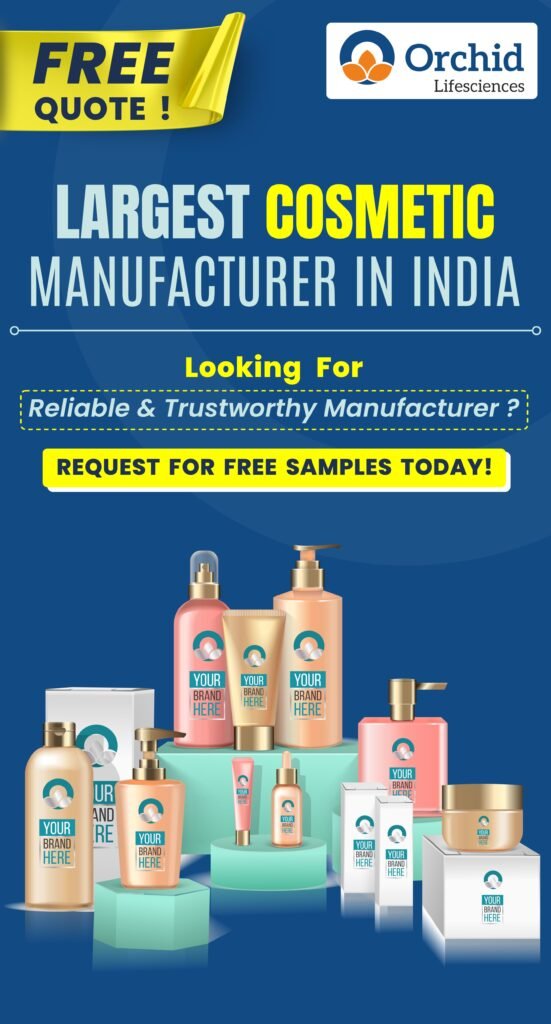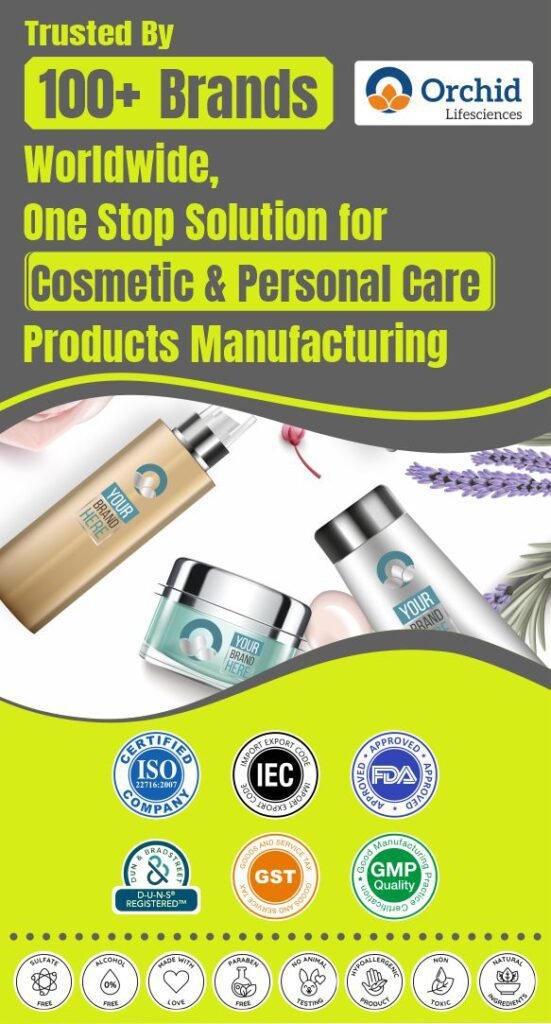The oral care industry in India has seen significant growth in recent years, with rising demand for specialized products like red gel toothpaste. Known for its bright appearance, refreshing flavour, and germ fighting properties, red gel toothpaste has become a popular choice among Indian consumers.
In Assam, a state known for its rich natural resources and growing industrial base, the toothpaste manufacturing sector is rapidly expanding, with several key players producing high-quality red gel variants.
The capital city, Guwahati, serves as a strategic hub for FMCG companies, including red gel toothpaste manufacturers, due to its connectivity and access to essential resources. Manufacturers based in Assam leverage the state’s natural ingredients like clove and mint, blending them with modern formulations to meet consumer preferences for herbal and effective oral care products.
Companies in the region, including local and national brands, focus on providing General Market (GM) solutions to both urban and rural areas, ensuring that their products reach a wide consumer base across Assam and beyond.
Leading Red Gel Toothpaste Manufacturers in Assam
Assam, as an emerging hub in the FMCG sector, hosts a mix of established multinational corporations, Ayurvedic product giants, and small and medium-sized enterprises (SMEs) that contribute to the state’s growing role in toothpaste manufacturing. Red gel toothpaste, with its unique appeal and market demand, is produced by some of the major players in the oral care industry, as well as by local manufacturers catering to niche markets. Below, we explore the leading red gel toothpaste manufacturers in Assam and their products.
1. Orchid Lifesciences
Orchid Lifesciences excels as a leading red gel toothpaste manufacturer in Assam by focusing on Ayurvedic and herbal formulations that cater to the growing consumer demand for natural, chemical free oral care products. Orchid Lifesciences incorporates traditional ingredients like neem, clove, and tulsi into its red gel toothpaste by blending all the therapeutic benefits of Ayurveda with the modern appeal of gel-based formulations.
They now have manufacturing capabilities for catering to various batch sizes, ranging from 25 kgs to 2000 kgs per batch. Their filling capacity for tubes has expanded from 25 Lakh to 55 Lakh per month, Bottle filling capacity from 5 Lakh to 15 Lakh per month, and jars from 5 Lakh to 12 Lakh per month. They also introduced new pouch packaging machines with a monthly filling capacity of 55 Lakh pouches.
Orchid Lifesciences is certified by many reputable associations like WHO- GMP facility, ISO 22716 certified, DUNS registered, GST Compliant, and approved by the FDA (Food and Drug Administration), which makes them a popular choice not only in India but also in countries across the globe. This assures that each & every product Manufactured at Orchid Lifesciences is 100% safe to use and effective.
With its commitment to quality, Orchid Lifesciences adheres to stringent standards, holding certifications such as GMP, ISO 9001, and AYUSH, ensuring product consistency and safety. Advanced manufacturing facilities and rigorous testing processes further solidify its reputation for delivering high-quality, effective toothpaste products both locally and in broader markets.
Address:
Plot No. 68-72, Tribhuvan Industrial Estate, Road No.11, Nr. Kathwada GIDC, Kathwada, Ahmedabad, Gujarat-382430
Contact:
+91-8980815444
+91-9898026828
+91-9922840985
Email – marketing@orchidlifesciences.com
Website:
https://orchidlifesciences.com/
2. Hindustan Unilever Limited (HUL)
Hindustan Unilever Limited (HUL) is one of India’s largest and most recognized FMCG companies, with a significant presence in the oral care market. HUL’s vast distribution network and strong marketing strategies have made it a dominant force in Assam and across India.
HUL’s oral care products include well-known brands such as Pepsodent and Close-Up, both of which offer gel toothpaste variants. Close-Up, in particular, is famous for its red gel toothpaste, which combines the benefits of freshness and cavity protection. Close-Up is positioned as a youth-oriented brand, with its red gel toothpaste marketed for providing long-lasting fresh breath and a cool, minty taste.
This flagship product from HUL is known for its unique formulation that offers intense freshness and germ protection. Infused with clove oil, menthol, and eucalyptus, Close-Up Red Hot Gel has been a popular choice for consumers who prefer a strong, refreshing flavour.
Although Pepsodent is traditionally associated with white pastes, the brand has also introduced gel variants targeting gum health. While not strictly red, this product uses gel technology to penetrate the gums and fight bacteria effectively.
HUL’s manufacturing presence in Assam enables the company to tap into the Northeastern markets while also benefiting from government incentives. Its advanced manufacturing techniques and extensive distribution channels ensure that its products, including red gel toothpaste, reach even the remotest parts of the region.
3.Patanjali Ayurved Ltd.
Patanjali Ayurved Ltd., a household name in India’s Ayurvedic and herbal product market, has made significant inroads into the oral care industry. Known for promoting natural and Ayurvedic alternatives to chemical-based products, Patanjali’s range of toothpaste, including red gel variants, has become immensely popular.
Patanjali’s success can be attributed to its emphasis on natural ingredients, which resonate with the growing consumer preference for Ayurvedic products. Patanjali has a significant distribution network in Assam and other parts of the Northeast, where its products are especially popular among consumers looking for herbal solutions.
One of the brand’s most popular oral care products, Dant Kanti Red Gel, combines Ayurvedic ingredients like clove oil, pudina (mint), neem and akarkara. This product is marketed as providing comprehensive protection against germs, bad breath, and tooth decay while being free from harmful chemicals.
Patanjali’s success in Assam is largely due to its ability to cater to both urban and rural markets. The brand’s affordable pricing, coupled with the appeal of Ayurveda, makes it a favourite among consumers who prefer natural oral care products over mainstream, chemical-based alternatives. Patanjali’s expansion into Assam also underscores the growing demand for Ayurvedic products in the region, positioning the state as a key market for herbal and Ayurvedic toothpaste.
4. Colgate-Palmolive India Ltd.
Colgate-Palmolive is a global leader in oral care products and one of the most trusted brands in India. The company’s stronghold on the Indian toothpaste market, particularly in Assam, is a testament to its wide product range, effective marketing, and commitment to oral health. Colgate’s extensive product lineup includes several red gel variants that cater to different consumer needs.
While Colgate Palmolive’s primary manufacturing facilities are spread across India, the company has a strong presence in Assam, distributing its products to both urban and rural areas of the state. Assam’s strategic location enables Colgate to access the entire Northeast region while also serving neighbouring markets.
One of Colgate’s most popular red gel products, Max Fresh is infused with menthol crystals, which provide an intense cooling effect and long-lasting freshness. The product’s bright red colour and gel formulation appeal to younger consumers looking for refreshing toothpaste that also provides cavity protection.
Although this product is not strictly a red gel, it combines salt and neem in a gel-based format to fight germs and promote gum health. This formulation appeals to consumers who prefer natural ingredients in their toothpaste, and the gel format provides a smoother brushing experience.
Colgate’s market dominance in Assam is fueled by its strong brand reputation and ability to cater to diverse consumer segments. The company’s focus on oral hygiene education and its vast distribution network ensures that Colgate products are available across the state, from urban centres to rural villages.
Local and Regional Manufacturers
In addition to the big players like Orchid Lifesciences, HUL, Patanjali and Colgate, Assam is home to several small and medium enterprises (SMEs) that manufacture red gel toothpaste. These local manufacturers often focus on Ayurvedic formulations, catering to niche markets that prioritize natural and herbal oral care products.
Assam’s local manufacturers contribute significantly to the state’s growing FMCG sector by producing affordable, herbal toothpaste formulations. These companies often specialize in private label and custom manufacturing, offering flexible production options for smaller brands or retailers looking to develop their toothpaste lines.
Many of Assam’s regional toothpaste manufacturers focus on producing herbal red gel toothpaste that incorporates locally sourced ingredients such as neem, tulsi, and clove. These products are typically marketed as Ayurvedic solutions that provide comprehensive oral care without the use of harsh chemicals. Local brands have found success in rural areas where consumers are more inclined to trust herbal and traditional products over modern formulations.
While local manufacturers face stiff competition from established national brands, they benefit from Assam’s growing consumer demand for Ayurvedic and herbal products. By focusing on niche markets and leveraging Assam’s rich herbal resources, these manufacturers are carving out a unique space in the oral care market.
Assam’s Role in the Oral Care Manufacturing Industry
Assam has seen steady industrial growth in recent years, particularly in sectors like FMCG, pharmaceuticals, and agro-based industries. Historically, Assam has been known for its rich natural resources, including tea and petroleum, but the state is now actively working to diversify its industrial base.
The development of industrial zones and special economic zones (SEZs), along with investments in infrastructure and logistics, has made Assam an attractive destination for manufacturing units.
Toothpaste manufacturing, especially in the gel and herbal categories, is gaining traction in Assam due to the availability of raw materials, growing consumer demand, and support from the state government.
The establishment of manufacturing units in the state is supported by the Assam Industrial Development Corporation (AIDC), which provides assistance and incentives to industries setting up operations in the state.
1. Strategic Location and Access to Raw Materials
Assam’s strategic location in the North-Eastern region of India provides manufacturers with access to both domestic and international markets. The state is a gateway to Southeast Asia, with proximity to countries like Bangladesh, Bhutan, and Myanmar, making it a key region for export-oriented industries. Moreover, the state’s access to rich natural resources, particularly herbal ingredients, gives manufacturers a unique advantage when producing herbal and Ayurvedic toothpaste varieties.
The availability of local herbs, such as neem, clove, and mint, which are often used in red gel toothpaste formulations, allows manufacturers to source raw materials locally, reducing costs and supporting sustainability. This has led to an increase in the production of herbal gel toothpaste, which caters to the growing consumer preference for natural oral care products.
2. Government Policies and Initiatives to Promote Manufacturing
The Assam government has been proactive in promoting industrialization and manufacturing in the state. Through initiatives like the North East Industrial and Investment Promotion Policy (NEIIPP), the government provides tax incentives, capital investment subsidies, and transportation subsidies to encourage industries to set up operations in the region. The policy aims to boost manufacturing in the North-East, providing a competitive edge to manufacturers in Assam compared to other regions.
The government is also focusing on improving infrastructure, including transportation networks and power supply, which are critical for sustaining large-scale manufacturing units. These initiatives, combined with Assam’s growing pool of skilled labour, are positioning the state as an attractive hub for FMCG manufacturing, including oral care products like red gel toothpaste.
3. Role of Assam in the North-East Industrial Corridor
Assam plays a crucial role in the North-East Industrial Corridor, a major initiative aimed at connecting the North-Eastern states with the rest of India and international markets. This corridor enhances the region’s connectivity through road, rail, and air links, facilitating the movement of goods and services. For toothpaste manufacturers, this improved infrastructure means faster and more efficient distribution channels, both within India and for exports to neighbouring countries.
The state’s location, coupled with improved logistics, allows manufacturers to tap into the fast-growing markets in the Northeast and beyond, making Assam a focal point for FMCG production in the region.
Types of Red Gel Toothpaste Produced in Assam
Manufacturers in Assam produce a wide range of red gel toothpaste formulations to meet the diverse needs of consumers. These formulations range from standard fluoride-based products to more specialized herbal and Ayurvedic options, catering to the growing demand for natural and holistic oral care solutions.
1. Fluoride and Non-Fluoride Red Gel Toothpaste
- Fluoride Toothpastes: Fluoride is a key ingredient in many toothpastes due to its ability to prevent tooth decay and strengthen enamel. Red gel toothpastes produced in Assam often contain fluoride, providing consumers with protection against cavities while delivering the refreshing benefits of gel formulations. These products are popular in urban areas, where dental health awareness is higher.
- Non Fluoride Toothpastes: For consumers who prefer natural or fluoride-free products, Assam-based manufacturers also produce red gel toothpaste without fluoride. These formulations typically rely on natural ingredients such as baking soda, neem, clove, and miswak to provide protection against cavities and promote overall oral hygiene. Non-fluoride variants are often marketed as safer for children or for people who are concerned about fluoride consumption.
2. Herbal and Ayurvedic Red Gel Toothpaste
Assam’s rich tradition of herbal medicine and Ayurveda is reflected in the wide variety of herbal red gel toothpaste produced in the state. These toothpastes often contain natural ingredients like neem, clove, tulsi (holy basil) and mint, which are known for their antibacterial and anti-inflammatory properties. Ayurvedic formulations appeal to consumers seeking natural remedies for oral care, offering benefits such as fresh breath, cavity protection, and gum health improvement.
Manufacturers in Assam capitalize on the growing trend toward natural and chemical-free personal care products by producing red gel toothpaste that emphasizes herbal extracts and Ayurvedic wisdom. These products are gaining popularity in both the domestic market and export markets, where natural oral care products are in high demand.
3. Whitening and Breath-Freshening Formulations
In addition to their basic cleaning function, many red gel toothpaste produced in Assam is formulated to offer specific benefits like teeth whitening and breath freshening. These formulations often include activated charcoal, clay or baking soda to gently polish teeth and remove surface stains, making them an attractive choice for consumers who want a brighter smile.
Breath-freshening variants are typically infused with ingredients like peppermint oil, eucalyptus and cinnamon, which not only provide long-lasting freshness but also help eliminate bacteria that cause bad breath. These products are particularly popular among younger consumers who prioritize fresh breath and aesthetic appeal in their oral care routine.
4. Private Label and Custom Red Gel Toothpaste
Many manufacturers in Assam offer private label and custom manufacturing services, allowing brands to develop their own unique red gel toothpaste formulations. This is particularly appealing to startups and niche brands looking to launch specialized products in the oral care market.
Private label manufacturers provide flexibility in terms of ingredient selection, packaging design, and branding, enabling companies to create products that align with their brand ethos. Assam’s growing manufacturing base is well-equipped to handle both small-batch and large-scale production, making it an ideal location for businesses looking to enter the red gel toothpaste market.
Challenges Faced by Toothpaste Manufacturers in Assam
Toothpaste manufacturing in Assam is growing steadily, thanks to increasing consumer demand for both conventional and herbal oral care products. However, the state’s manufacturers face several challenges that affect their operations and expansion in the market. These challenges include issues related to raw material sourcing, competition from larger brands, regulatory hurdles, infrastructure constraints, and sustainability concerns. Below, we explore some of the key challenges faced by red gel toothpaste manufacturers in Assam.
1. Sourcing of Raw Materials for Herbal and Ayurvedic Formulations
One of the biggest challenges for manufacturers of red gel toothpaste in Assam, particularly those producing herbal or Ayurvedic variants, is the reliable sourcing of high-quality raw materials. Ingredients such as neem, clove, tulsi and mint are critical to the production of this toothpaste, but ensuring a steady supply of these ingredients is not always easy.
- Seasonal Availability: Many herbal ingredients used in Ayurvedic toothpaste are harvested seasonally, which can lead to supply chain disruptions. Manufacturers must either stockpile raw materials or rely on imports, both of which can increase production costs.
- Fluctuating Prices: The prices of key herbs and essential oils can fluctuate based on market demand and agricultural output. For instance, if there is a poor crop yield for mint or clove, the prices of these ingredients may skyrocket, affecting the cost structure of toothpaste manufacturers.
- Sourcing Consistency and Quality: Ensuring the quality and purity of raw materials is critical, particularly for manufacturers marketing their products as herbal or Ayurvedic. However, variations in the quality of herbs and natural extracts can affect the consistency of the final product. This puts pressure on manufacturers to work with trusted suppliers or invest in in-house quality testing to maintain product standards.
2. Competition from Established FMCG Giants
The oral care market in India is highly competitive, with large multinational corporations such as Hindustan Unilever (HUL) and Colgate-Palmolive dominating the landscape. These companies have substantial resources to invest in marketing, distribution, and product innovation, making it difficult for smaller or newer manufacturers in Assam to compete.
- Brand Loyalty: Established brands like Orchid Lifesciences, Colgate, Close-Up, and Patanjali enjoy strong brand loyalty among consumers, making it difficult for local manufacturers to gain market share. Even if local brands offer high-quality products, convincing consumers to switch from well-known brands can be a significant challenge.
- Marketing and Advertising Budgets: Large FMCG companies have massive advertising budgets that allow them to promote their products through television, digital platforms, and celebrity endorsements. This level of visibility is often unattainable for smaller manufacturers in Assam, who may struggle to compete in terms of brand awareness.
- Pricing Pressure: Due to their large-scale operations, multinational companies can produce toothpaste at lower costs, allowing them to offer competitive pricing. Local manufacturers in Assam, especially those focusing on herbal or Ayurvedic formulations, often face higher production costs, making it difficult to match the price points of larger brands while maintaining profitability.
3. Regulatory and Quality Control Challenges
Toothpaste manufacturers in Assam, like those across India, must comply with stringent regulatory standards to ensure product safety and efficacy. Compliance with both domestic and international regulations can be complex and costly, particularly for smaller manufacturers.
- Regulatory Compliance: In India, toothpaste manufacturers must comply with guidelines set by the Food Safety and Standards Authority of India (FSSAI) for products containing fluoride or other active ingredients. Additionally, Ayurvedic and herbal toothpaste must be certified by the AYUSH ministry to ensure they meet the required standards for safety and efficacy. Meeting these regulatory requirements involves significant documentation, product testing, and quality assurance, which can be time-consuming and expensive.
- Quality Control: Ensuring consistent product quality is a major challenge, especially for manufacturers producing herbal or Ayurvedic toothpaste. Variations in raw material quality, manufacturing processes, and packaging can all affect the final product. Manufacturers must invest in robust quality control systems, including regular testing of raw materials and finished products, to maintain the desired standards.
- Export Compliance: For manufacturers looking to export their products, compliance with international regulations adds another layer of complexity. Countries such as the United States, the European Union, and Southeast Asia have specific regulations regarding product safety, labelling, and packaging. Ensuring compliance with these international standards requires additional testing, certification, and often changes to product formulations or packaging.
4. Infrastructure and Logistics in a Geographically Challenging Region
While Assam’s strategic location in North-East India offers several advantages, the region’s geography also presents challenges, particularly in terms of infrastructure and logistics. The state’s remote location and difficult terrain can complicate transportation and distribution, affecting both the supply of raw materials and the delivery of finished products.
- Transportation Bottlenecks: Assam’s mountainous terrain and frequent flooding during the monsoon season can disrupt road and rail networks, causing delays in the transportation of raw materials and finished goods. This is especially problematic for manufacturers who rely on just-in-time production processes or who supply markets in other parts of India or abroad.
- High Logistics Costs: Due to Assam’s distance from major industrial and consumer centres, the cost of transporting goods is often higher than in other parts of India. This can erode the profit margins of manufacturers, particularly those operating on a smaller scale. For local companies competing with larger, more established brands, these added costs can be a significant disadvantage.
- Limited Industrial Infrastructure: While Assam is making strides in developing its industrial infrastructure, the region still lags behind other states in terms of power supply, industrial parks, and warehousing facilities. Manufacturers in Assam may face higher operational costs due to frequent power outages, a lack of reliable water supply, or the need to invest in private warehousing and logistics solutions.
5. Sustainability Challenges and Eco-Friendly Packaging
As global and domestic consumers become more environmentally conscious, toothpaste manufacturers in Assam must grapple with the growing demand for sustainable practices and eco-friendly packaging. While this presents an opportunity for brands to differentiate themselves, it also poses significant challenges, especially for smaller manufacturers.
- Sourcing Sustainable Ingredients: Manufacturers producing herbal or Ayurvedic red gel toothpastes must ensure that their ingredients are sourced sustainably, without harming the environment or depleting natural resources. This often requires working with certified suppliers and adhering to fair-trade practices, which can increase costs.
- Eco Friendly Packaging: Packaging is a key concern for toothpaste manufacturers, as traditional plastic tubes contribute significantly to environmental waste. Consumers are increasingly demanding sustainable packaging options, such as biodegradable, recyclable, or refillable tubes. Implementing these packaging solutions can be costly, especially for smaller manufacturers who may not have the resources to invest in new packaging technologies.
- Certifications and Green Practices: Manufacturers who wish to market their products as environmentally friendly or sustainable must obtain certifications such as ISO 14001 (Environmental Management) or LEED (Leadership in Energy and Environmental Design). Achieving these certifications requires investments in energy-efficient manufacturing processes, waste reduction practices, and sustainable sourcing strategies, all of which add to the operational costs of toothpaste manufacturing.






